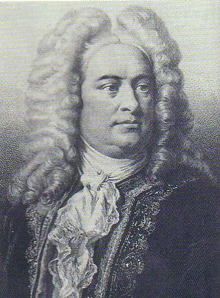Handel House Museum: Castrati and Divas

George Frederick Handel, England, Dublin
 George Frederick Handel (1685-1759), the well travelled German born baroque composer and organist, resided in England from 1712 and became a British citizen in 1727. He is chiefly remembered for his choral works, specially the oratorio Messiah (1741) and, for orchestra, his Water Music suite (c.1717) and Music for the Royal Fireworks (c.1749).
George Frederick Handel (1685-1759), the well travelled German born baroque composer and organist, resided in England from 1712 and became a British citizen in 1727. He is chiefly remembered for his choral works, specially the oratorio Messiah (1741) and, for orchestra, his Water Music suite (c.1717) and Music for the Royal Fireworks (c.1749).
Dublin audiences were no strangers to the music of George Frederick Handel. In 1741 he arrived at the invitation of the Duke of Devonshire, Lord Lieutenant of Ireland. Handel’s opera Acis and Galatea had received the first of many Dublin performances on l May 1734 in Crow Street Music Hall. The composer and organist, often wearing an enormous white wig with curls cascading to his shoulders, arrived in Dublin from London via Chester on 18 November 1741 and took lodgings in Abbey Street.
Premiered in Dublin on 13 April 1742 at the New Musical Hall in Fishamble Street, Handel’s Messiah oratorio with its rowsing Hallelujah chorus is among the most popular works in choral music and has become a centrepiece of Christmas music. To commemorate its first performance in Dublin, since 1989 Our Lady’s Choral Society has performed excerpts of Messiah in Fishamble Street, Dublin, that remains a popular musical event.
Handel House Museum
Restored by the Handel Trust Fund to reflect its early Georgian interiors, Handel House Museum in London was opened to the public on 8 November 2001. To mark the 250th anniversary of the composer’s death, in 2009 there will be performances of his music throughout the world as a ‘special year’ for admirers with some events in buildings and venues which Handel would have known.
A major programme will include BBC broadcasts, new music commissions, concerts, performances of rarely heard works and a new exhibition to Reveal Handel’s Character, Shedding Light on his Work, Health, Friends and Life in London. At the heart of commemorations will be Handel House Museum, 25 Brook Street, the composer’s home for thirty six years and where he died early in the morning on 14 April 1759. He is buried in Poet’s Corner at Westminster Abbey, London.
In 2003 the Handel House Museum first major exhibition focussed on the composer’s remarkable relationship with the Foundling Hospital founded in 1739. As England’s first hospital for abandoned children it was near his house where the unmarried Handel lived, slept, entertained, composed and rehearsed. Situated in a good upper middle class area of London, the house was a landmark address and is still a major musical venue.
Stimulated by “motives of the purest benevolence and humanity”, Handel’s involvement with the Foundling Hospital began in 1749 with a concert in aid of the hospital’s chapel building work. He was elected Governor in 1750, donated the chapel organ and from then onwards Messiah was performed under his direction on an annual basis for the hospital’s benefit. It is estimated within a decade he had generated income of ?10,000.
Castrati and Divas
A practice that was banned in 1903, castrati - originating from mid-eighteenth century Italian - historically were male singers castrated in boyhood so as to retain a soprano or alto voice at a time where women were banned from performing in public.
In the nineteenth century from the Latin dea, meaning “goddess”, the ladies who sang in operas displayed the demanding and prickly, competitive, irrational traits that we now associate with the word diva. London in the eighteenth century was no exception and Handel suffered as much as anyone from the antics of these prima donnas, so much that he even threatened to drop one from a window. Some of the castrati behaved worse than any of the women.
The exhibitions Handel and the Castrati (2006) and Handel and the Divas (2008) showcased artists giving interesting insights into male and female singers with whom he worked. Through portraits, scores, objects and the music they sang, the exhibitions explored the careers, rivalries, successes, failures and stories of scandalous behind the scenes behaviour which made castrati and divas the talk of the earlier centuries in London.

Ita Marguet, January 2009
Note: Acknowledgement is given to all sources used in preparation of this text. It follows a published article Handel in Ireland: Dublin and Messiah (Ita Marguet, April 2006).


